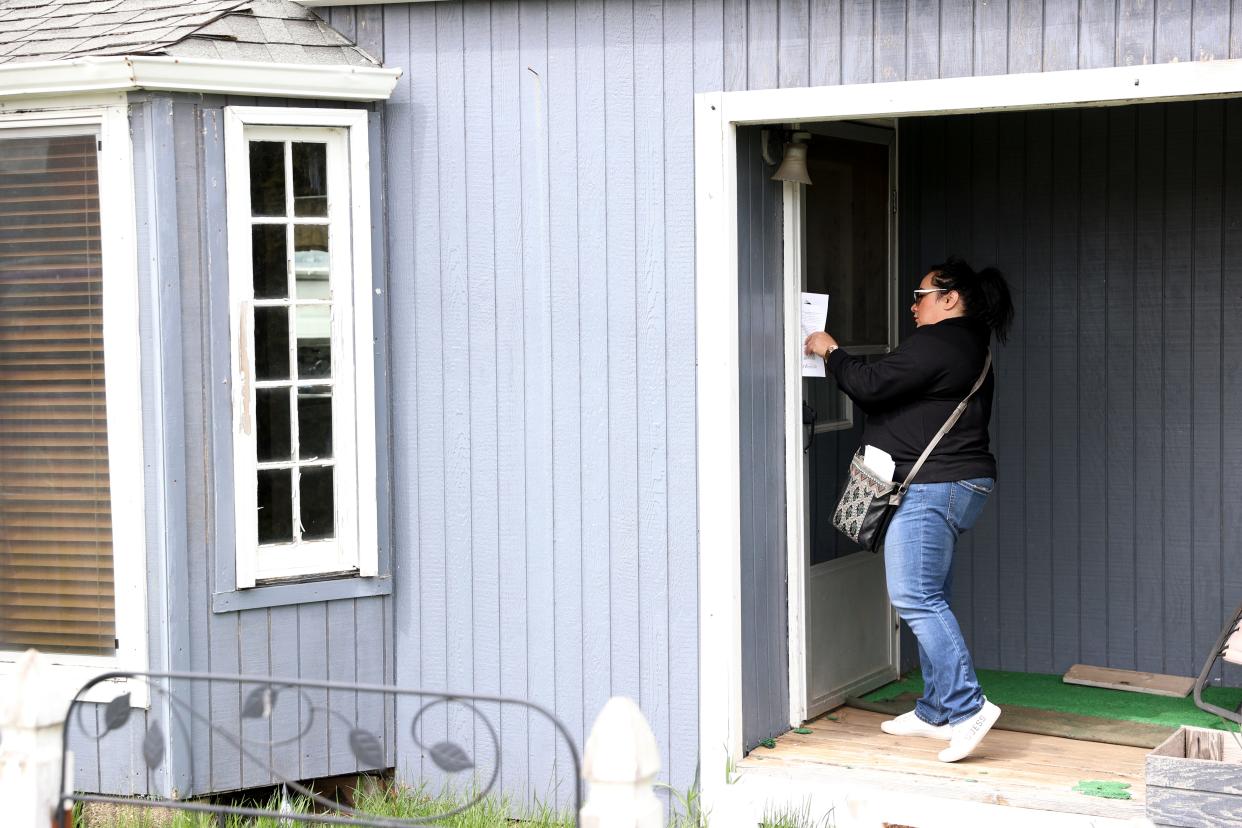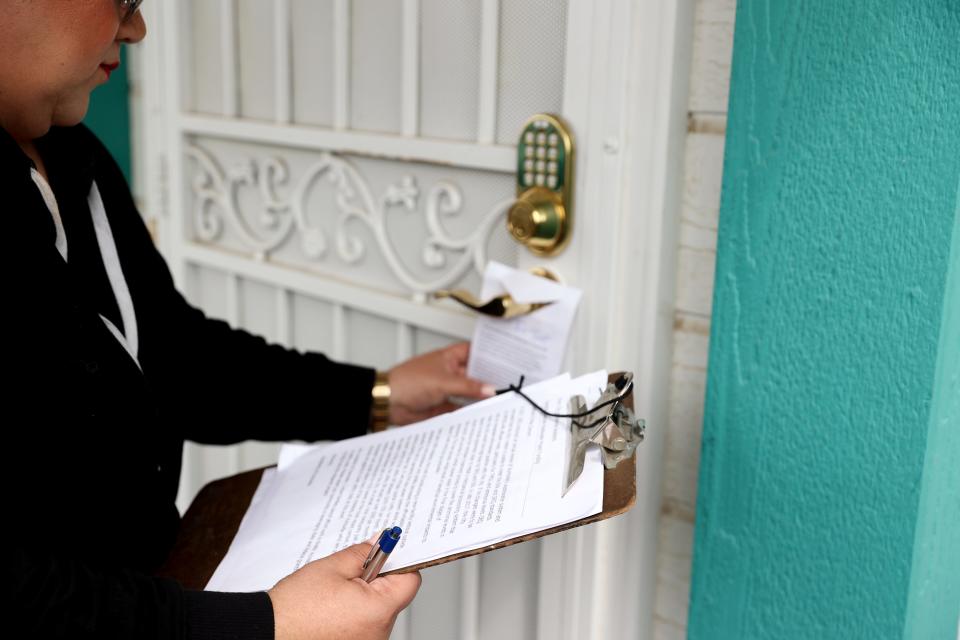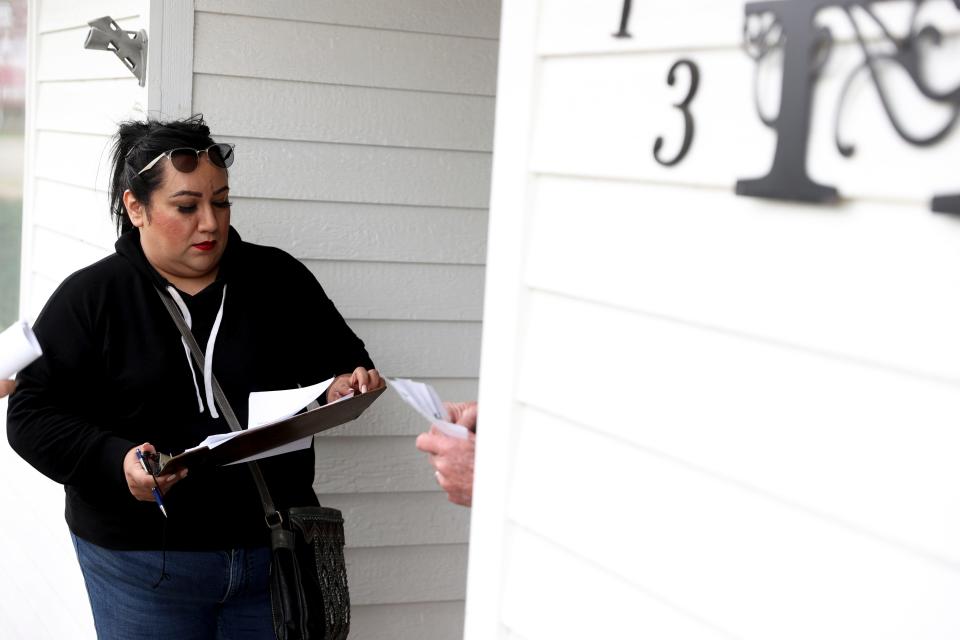In this Mid-Valley city, a $300 monthly water bill could become the norm

Would you live in a city where the water and sewer bill is $300 a month?
That’s something people in Aumsville could face.
The city is facing an estimated $28 million bill to pay for a new wastewater treatment facility it is being forced to build. It has been asking for money from state and federal governments and saving since it found out in 2017, but it still only has about $4 million.
If the rest of the money doesn’t come from elsewhere, it would be passed on to the town's 4,000 residents.
The average water and wastewater bill in Aumsville is $102 – before the $12 public safety fee, which is low compared to other cities in the Willamette Valley, according to a survey by the League of Oregon Cities.
But in a city with 27% of people living under the poverty level and 25% barely above it, tripling that bill will have a huge impact.
“A $300 water bill would kill our town,” Aumsville mayor Angelica Ceja said.
What does Aumsville do now?
Aumsville built a tertiary wastewater treatment facility to handle sewage in 1960 on the northern edge of the city.
All wastewater in the city is sent to 16 acres of manmade ponds. The ponds can be seen along Highway 22 when heading east.
When the water arrives, non-biodegradable solids are filtered out. And there are lots of unusual ones.
Workers have found guns, tennis balls, toys and washcloths, among many other items.
“Just anything that you can think of people would flush,” Aumsville city administrator Ron Harding said.

From there, it is pumped into the first of four ponds, where oxygen is introduced and bugs eat the waste in the wastewater. The water is moved between the ponds over a period of months until it is completely treated.
Then chlorine is added and the treated wastewater is pumped out.
“It’s a very natural system,” Ceja said.
In the summer, the treated wastewater is sent to an 85-acre farm the city owns south of Aumsville on West Stayton Road to irrigate non-food crops like mint or grain.
In the winter, the water is discharged into Beaver Creek.
Why does Aumsville need this?
For more than 50 years, that system was acceptable.
But in 2017, the state’s Department of Environmental Quality alerted the city that its standards were becoming more strict. The city’s system no longer meets federal standards for the amount of ammonia released into the environment.
That means the city is required to build a wastewater treatment facility that would get rid of the ammonia.
“It wasn’t that we were doing anything wrong. Our system was fine with the previous standards. The standard changed," Ceja said.
A new facility won't be cheap.
The initial estimate was $12 million. But that price has gone up.
“The $28 million is sort of a hypothetical until we go out for bid,” Harding said.

Aumsville could be fined now for not being in compliance, Harding said, but the DEQ has deferred any fines.
“I think we have to be fully operational by 2027,” Harding said. “But we are meeting all the milestones. If we’re in the middle of construction when that dates hit, I’m sure that they’d give us an extension. We’re going to have to show progress.”
Harding said no matter what, water and sewer bills will go up. Operating the plant will cost an estimated $50 more per resident per month.
Making sure residents know what is happening
When Aumsville's city council raised water bills by $12 a month to fund 24/7 police services in 2018, it resulted in an uproar by residents and led to the recall of nearly half the council.
This time, the council is taking a different tact.
Ceja and the six city councilors have been going house to house throughout the city to tell people what could happen.
Ceja said she doesn’t want to scare residents about the possible large monthly increase, but she wants to inform them.
“It’s about communicating and making sure that we have reached every resident in this community that knows the worst-case scenario that is coming down the line,” Ceja said.
Harding said the city has about $4.3 million saved so far.
The city received $984,000 through the American Rescue Plan Act and Marion County gave it another $1 million in ARPA funds. It’s received $1.3 million from the federal government. And the city has saved about $1.2 million from development fees charged when new homes are built.
Now they're asking for help.
Ceja said she has lobbied state lawmakers to get them to ask the state Legislature for money.
She said State Rep. Ed Diehl and State Sen. Fred Girod have asked the Legislature for $15 million for the project.
And the city is applying for every grant it can.
"But the reality is we’ve got to build the facility," Harding said. "It’s not an option. It’s a mandate. And so then it’s about engaging your community and letting them know that it’s coming."
Bill Poehler covers Marion County for the Statesman Journal. Contact him at bpoehler@StatesmanJournal.com
This article originally appeared on Salem Statesman Journal: Water bills may triple for residents of Aumsville, Oregon

